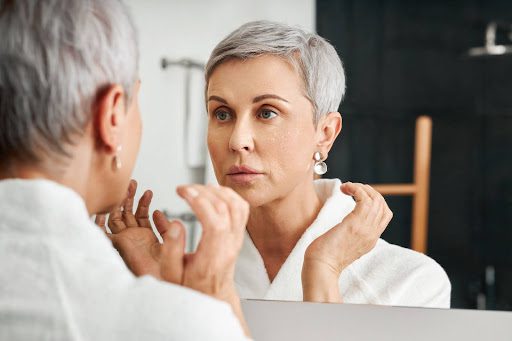If you’ve scheduled an afternoon workout but lack the motivation to move away from your desk or get off the couch, your gut could be sending you a strong message.
A recent study found that gut health can impact your inclination to exercise. Researchers gathered a few hundred genetically and behaviorally diverse mice to determine why some people feel more motivated to move than others. They measured how long mice voluntarily ran on a treadmill and how long it took to exhaust themselves running.
Compared with other factors, researchers found that the makeup of the mice’s microbiome—the trillions of bacteria that inhabit the gut—better predicted how long and hard these mice ran.
They continued by treating some of the mice with antibiotics, which destroy gut bacteria. Without those bacteria, the normally energetic mice were about 50% less motivated to exercise.
Researchers explored how specific gut bacteria communicate with the brain from that observation. They learned that dopamine, a neurotransmitter that helps you feel motivated, underlies that communication—and about 50% of it is produced in the gut. Without healthy bacteria, the gut can’t send that message effectively to the brain. You might not get optimal amounts of dopamine, which could impact your inclination to exercise.1
The Connection Between Gut Health and Exercise
This study highlights how gut health has far-reaching implications, including your motivation to exercise. When those bacteria fall out of balance, a condition called dysbiosis results.
Antibiotics, chronic stress, environmental toxins, and a crappy diet are some of the culprits that can contribute to dysbiosis. Those imbalances, in turn, can create other problems including gut inflammation (which becomes systemic inflammation), insulin resistance, and even dementia.2
You’re also more likely to damage the integrity of the gut lining, which prevents harmful substances from entering the bloodstream. A compromised gut lining also makes conditions like leaky gut more common.
Over my four decades working in the health and fitness space, I’ve learned that gut health and exercise are a two-way street. Moderate exercise supports a healthy gut, whereas over-exercise or overly intense exercise can create gut problems. A healthy gut, on the other hand, can support and even improve exercise performance.3
Whether you’re lacking the motivation to get moving or want to up-level your fitness, here are five ways that maintaining a healthy gut can help you reach and maintain peak physical performance.
A Healthy Gut Optimizes Nutrient Absorption
Your gut produces enzymes and other compounds that break down food particles. These compounds also release nutrients from food. Gut bacteria do more than just break down nutrients: they also make them, including thiamine, folate, biotin, riboflavin, and pantothenic acid.4
Every one of these B vitamins plays an important role in energy production. When those bacteria fall out of balance, nutrient absorption becomes impaired, so your gut can’t always make or produce the nutrients your body needs to perform.5
A healthy gut also breaks down macronutrients, including protein.6 Those smaller molecules help build strong bones, muscle, and all the other wonderful things that protein does.7 A healthy gut ensures that you efficiently break down and assimilate that protein.
If you’re over the age of 35 or under stress, a digestive enzymes supplement ensures that you’re breaking down protein and other micronutrients efficiently. Protein First Enzymes contains a proprietary blend of digestive enzymes along with betaine HCl to support optimal digestion and absorption.*
A Healthy Gut Helps Manage Inflammation
I mentioned earlier that dysbiosis can contribute to gut inflammation, which eventually becomes a low-grade, damaging chronic inflammation that can impact every organ. Studies show that a proliferation of harmful bacteria, brought about when your gut falls out of balance, can contribute to this harmful inflammation.8
For physically active folks, chronic inflammation is their worst nightmare. Recovery slows down, creating tissue damage that delays the repair process. You’re more likely to feel sore after an intense workout (and not the good kind!), hindering your ability to perform at a high level and making you more prone to injuries. Fatigue, illness, and mood disorders including anxiety and depression become more common, too.
A healthy gut keeps that inflammation in check. As a result, your body can more efficiently reduce post-workout soreness, speed up recovery time, and help you perform better.
A Healthy Gut Can Help You Sleep Better
Repair and recovery are for peak physical performance, and sleep is the number-one way to support your body’s recovery process.
Your gut produces several compounds involved in regulating sleep. They include serotonin, which creates your sleep hormone melatonin, as well as gamma-aminobutyric acid (GABA), which promotes calm and reduces stress.
When you don’t sleep well, your gut can’t create enough of these neurotransmitters. The repercussions include losing muscle mass and not recovering as well.9 Even when you lift heavy, you’re not going to get the full benefits when you don’t sleep well.
Conversely, great sleep can support peak athletic performance, including accuracy and alertness during your workout.10 Sleep is the best medicine to heal your gut, perform well physically, and much more.
If you have trouble falling or staying asleep (it happens to us all), Sleep Candy™ is my go-to formula that combines melatonin with other calming nutrients to help you get deep, restorative sleep… every single night.*
A Healthy Gut Optimizes Your Metabolism
Dysbiosis can crash your metabolism, or how your body uses food for energy. When your gut falls out of balance, so does the way your body stores and burns energy.
As a result, glucose (sugar) breakdown falters, impairing the ability of your brain and other organs to utilize that sugar.11 Dysbiosis can also impair how your body breaks down fat, increasing your risk of high triglycerides and unhealthy cholesterol levels and paving the way for heart disease.12
Put another way, dysbiosis means you’re more likely to store rather than burn fat. You’re not as efficient as burning calories, and you may find yourself hungrier for no particular reason.
A healthy gut, on the other hand, boosts your metabolism (and your physical performance) by producing optimal amounts of short-chain fatty acids (SCFAs). Among their duties, SFCA support energy production. Research shows they enhance muscle metabolism and exercise performance.13
Balanced blood-sugar levels and improved insulin sensitivity also result from a healthy gut.14 Steady blood-sugar levels mean you perform better physically, maintain endurance during your workout, and recover better.
A Healthy Gut Helps You Manage Stress Like a Champ
Stress can be a double-edged sword. If an intense workout helps relieve a hectic day, you know that stress might give you the motivation to exercise. But chronic stress has the opposite effect: one review of several hundred studies found that it impairs your efforts to be physically active.15
Your gut regulates the production of stress hormones, including cortisol, which should be highest in the morning and gradually taper throughout the day. An inflamed gut can keep cortisol revved up even when your body doesn’t need it to be. Elevated cortisol can keep inflammation activated, creating a vicious cycle.
To keep cortisol levels in balance, your gut produces neurotransmitters including serotonin and dopamine that promote a healthy stress response. A healthy gut ensures that you’re producing the right amounts of these stress-managing neurotransmitters.
A Great Workout Demands a Healthy Gut
This new study about exercise motivation highlights the importance of gut health, and I believe newer research will continue to show how the gut impacts on various aspects of exercise performance.
The condition and health of your gut impact so many things, including headaches, migraines, weight gain, hormonal imbalances, fatigue, and immune challenges.16 Many of these things effect your physical performance.
Gut health starts with the end of your fork, along with lifestyle factors including great sleep, stress management, and the right nutrients. I’ve combined all of those strategies in The Virgin Diet, which provides the resources you need to help calm inflammation from hidden food sensitivities, lose fat, support your metabolism, and feel energized and better than ever.*
*These statements have not been evaluated by the Food & Drug Administration. Products mentioned are not intended to diagnose, treat, cure, or prevent any disease. The views in this blog by JJ Virgin should never be used as a substitute for professional medical advice. Please work with a healthcare practitioner concerning any medical problem or concern.
References:
- Dohnalová L, Lundgren P, Carty JRE, Goldstein N, Wenski SL, Nanudorn P, Thiengmag S, Huang KP, Litichevskiy L, Descamps HC, Chellappa K, Glassman A, Kessler S, Kim J, Cox TO, Dmitrieva-Posocco O, Wong AC, Allman EL, Ghosh S, Sharma N, Sengupta K, Cornes B, Dean N, Churchill GA, Khurana TS, Sellmyer MA, FitzGerald GA, Patterson AD, Baur JA, Alhadeff AL, Helfrich EJN, Levy M, Betley JN, Thaiss CA. A microbiome-dependent gut-brain pathway regulates motivation for exercise. Nature. 2022 Dec;612(7941):739-747. doi: 10.1038/s41586-022-05525-z. Epub 2022 Dec 14. PMID: 36517598.
- Lazar E, Sherzai A, Adeghate J, Sherzai D. Gut dysbiosis, insulin resistance and Alzheimer’s disease: review of a novel approach to neurodegeneration. Front Biosci (Schol Ed). 2021 Jun 30;13(1):17-29. doi: 10.52586/S550. PMID: 34256527.
- Clauss M, Gérard P, Mosca A, Leclerc M. Interplay Between Exercise and Gut Microbiome in the Context of Human Health and Performance. Front Nutr. 2021 Jun 10;8:637010. doi: 10.3389/fnut.2021.637010. PMID: 34179053; PMCID: PMC8222532.
- Moron R, Galvez J, Colmenero M, Anderson P, Cabeza J, Rodriguez-Cabezas ME. The Importance of the Microbiome in Critically Ill Patients: Role of Nutrition. Nutrients. 2019 Dec 7;11(12):3002. doi: 10.3390/nu11123002. PMID: 31817895; PMCID: PMC6950228.
- Tardy AL, Pouteau E, Marquez D, Yilmaz C, Scholey A. Vitamins and Minerals for Energy, Fatigue and Cognition: A Narrative Review of the Biochemical and Clinical Evidence. Nutrients. 2020 Jan 16;12(1):228. doi: 10.3390/nu12010228. PMID: 31963141; PMCID: PMC7019700.
- Oliphant K, Allen-Vercoe E. Macronutrient metabolism by the human gut microbiome: major fermentation by-products and their impact on host health. Microbiome. 2019 Jun 13;7(1):91. doi: 10.1186/s40168-019-0704-8. PMID: 31196177; PMCID: PMC6567490.
- Gut Microbiota for Health: Protein consumption, the gut microbiota and health
- Al Bander Z, Nitert MD, Mousa A, Naderpoor N. The Gut Microbiota and Inflammation: An Overview. Int J Environ Res Public Health. 2020 Oct 19;17(20):7618. doi: 10.3390/ijerph17207618. PMID: 33086688; PMCID: PMC7589951.
- Dattilo M, Antunes HK, Medeiros A, Mônico Neto M, Souza HS, Tufik S, de Mello MT. Sleep and muscle recovery: endocrinological and molecular basis for a new and promising hypothesis. Med Hypotheses. 2011 Aug;77(2):220-2. doi: 10.1016/j.mehy.2011.04.017. Epub 2011 May 7. PMID: 21550729.
- Watson AM. Sleep and Athletic Performance. Curr Sports Med Rep. 2017 Nov/Dec;16(6):413-418. doi: 10.1249/JSR.0000000000000418. PMID: 29135639.
- Medical News Today: Gut bacteria are ‘major player’ in weight loss success
- Lau K, Srivatsav V, Rizwan A, Nashed A, Liu R, Shen R, Akhtar M. Bridging the Gap between Gut Microbial Dysbiosis and Cardiovascular Diseases. Nutrients. 2017 Aug 10;9(8):859. doi: 10.3390/nu9080859. PMID: 28796176; PMCID: PMC5579652.
- Huang L, Li T, Zhou M, Deng M, Zhang L, Yi L, Zhu J, Zhu X, Mi M. Hypoxia Improves Endurance Performance by Enhancing Short Chain Fatty Acids Production via Gut Microbiota Remodeling. Front Microbiol. 2022 Feb 7;12:820691. doi: 10.3389/fmicb.2021.820691. PMID: 35197946; PMCID: PMC8859164.
- Chen Z, Radjabzadeh D, Chen L, Kurilshikov A, Kavousi M, Ahmadizar F, Ikram MA, Uitterlinden AG, Zhernakova A, Fu J, Kraaij R, Voortman T. Association of Insulin Resistance and Type 2 Diabetes With Gut Microbial Diversity: A Microbiome-Wide Analysis From Population Studies. JAMA Netw Open. 2021 Jul 1;4(7):e2118811. doi: 10.1001/jamanetworkopen.2021.18811. Erratum in: JAMA Netw Open. 2021 Sep 1;4(9):e2128944. PMID: 34323983; PMCID: PMC8322996.
- Stults-Kolehmainen MA, Sinha R. The effects of stress on physical activity and exercise. Sports Med. 2014 Jan;44(1):81-121. doi: 10.1007/s40279-013-0090-5. PMID: 24030837; PMCID: PMC3894304.
- Pedre, Vincent. Happy Gut: The Cleansing Program to Help You Lose Weight, Gain Energy, and Eliminate Pain (p. 15). HarperCollins. Kindle Edition.






